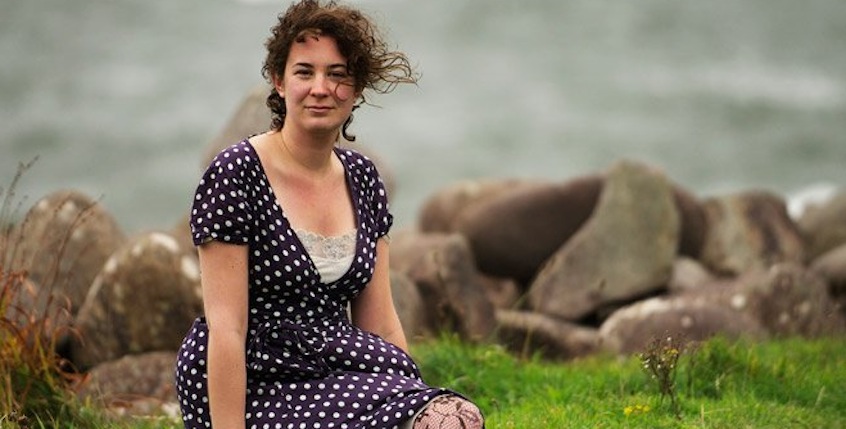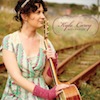Gaelic Americana musician and songwriter Kyle Carey writes about the ups and downs and ins and outs of recording an album.
An album isn’t finished when the musicians go home. One could argue in reality, that’s when it all begins. After recording week, I flew back to the States to visit with my family, sleeping three days straight to recover from the emotional strain of it all. Not that I wasn’t thrilled with how everything went, still, the rough mp3s I’d taken home with me had a long way to go.
Two weeks later, I flew back to Ireland to continue work with my producer, Donogh Hennessy. The songs were in his hands now, and he assured me that he’d give them the desired polish. I had vocal tracks to re-do, we had a percussionist to bring in, and ‘Adenine’ to send overseas to Cleek Schrey, a young fiddler from West Virginia, those old-time style I hoped would return a bit of the grit to the tune. Some of the best ideas came during those three weeks of editing. I thought we might give banjo a try in Gaol ise Gaol i. I’d zipped up to Skye in Scotland, the week after being home, sending my Gàidhlig teacher the mp3 for Gaol ise before hand.
‘Tha e gu math proifeiseanta’, ‘it’s very professional’ he said, but, ‘chan eil mi ag iarraidh ‘Celtic Connections’ nach e seinneadair ‘bluegrass’ a th’ annad? Bha mi ag iarraidh ‘bluegrass’, ‘I don’t want to hear Celtic Connections, aren’t you a bluegrass singer? I wanted bluegrass!’
He had a point. I wanted the album to be a direct reflection of my own experiences, of the places that I’d lived and played music, but also my song-writing sensibility. In its current form, Appalchia wasn’t coming though in Gaol ise. So I sent Appalachain extraoirdinaire John Kirk an e-mail, asking him to try banjo in the tune. We received a file a week later with the message: ‘banjo and 6/8, now I’ve heard everything!’ Surprisingly, it fit. The tune in Scottish Gàidhlig now blended thematically with the rest of the album. We threw in a mournful banjo outro for ‘Monongah’, and Donogh recorded a third guitar part for ‘John Hardy’s Wife’, finding the right balance for Neil Fitzgibbon’s picking pattern and Brendan’s O’Sullivan’s fiddle. Pauline Scanlon’s harmony for ‘Let Them Be All’ made for a marriage of Appalachia and Ireland, with her distinctively Irish ornamentation along with my straight Southern Gospel style delivery.
The hours passed, Donogh chopped. I brought over take out for dinner, Donogh chopped. Spring came, Donogh edited and chopped. Walter Donogh’s, laber-doodle wandered from the sitting room to the door of the studio fifteen times as Donogh chopped, and finally, one evening, the album was done. We went out to a swank restaurant to celebrate and then went back to his to listen to the album twenty more times to
celebrate again.
‘I’ll bet you’ll be thrilled if you never have to hear these songs again.’ I told him.
‘I’ll give it the space of a year,’ he replied.
And so I said goodbye to my producer, informally, because anything else would be bad luck, and sent mastered mp3s to my manager, so he could start booking the fall CD launch tour with Cape Breton fiddler Rosie MacKenzie. Then it was a matter of checking lyrics, listing musicians, writing a dedication, and narrowing down to about fifteen all of the hundreds I wanted to thank, and of course, designing a CD jacket and cover that would illustrate the album’s theme.
After a few false-starts, we settled on a cover shot of myself sitting some train-tracks, saved from cliché by the fact that they’re Irish, as opposed to West Virginian, and settled for myself a-top a stone wall in West Kerry for the back cover. There are more lovely things to come, a postcard with a free mp3 download, an insert that folds out to a poster with my photograph on one side, and the lyrics on the other, in old-fashioned, stained print. For the tour, one of the artist’s from my production company, The Plant, is going to illustrate ‘Monongah’ and print it on water-colour paper, to be sold at the merchandise table.
Now it’s just a matter of spending the summer adventuring with my fiddler Rosie, up to Skye, over to Cape Breton, and finally back to New Hampshire, where we’ll meet up with Neil to begin the Fall Tour. As Steve Earle so eloquently puts it, ‘the highway will be our only home’ for those months, I hope to get a few good songs out of it, at the very least.
The ingredients of Kyle Carey’s music include the songs of the American Folk Anthology, the Appalachian poetry of Louise McNeill, and weekends spent working at Caffe Lena (in Saratoga Springs, NY) and listening to the best musicians in contemporary folk. The results are well described by Kerry Dexter of ‘Music Road’: “It is Kyle Carey’s poetic take on story, landscape, emotion, and language which center things, and her engaging storyteller’s way of singing that opens the door to her stories. Gospel twined with Celtic notes, banjo leading into Scottish Gaelic, miner’s stories, traveler’s tales of loss, change, and recognition, Monongah is a varied journey, one worth the taking.”
Recorded in Ireland last winter, Kyle’s debut album ‘Monongah’ rose to number eight this past summer on the Folk DJ charts, landing on a number of ‘Best of 2011’ lists by year’s end. Her original songs draw heavily from the American folk tradition, while her fluency in Scottish Gaelic makes for her own brand of ‘Gaelic Americana’.
For tour information and to purchase Kyle’s album visit www.kyleannecarey.com.



Leave a Reply